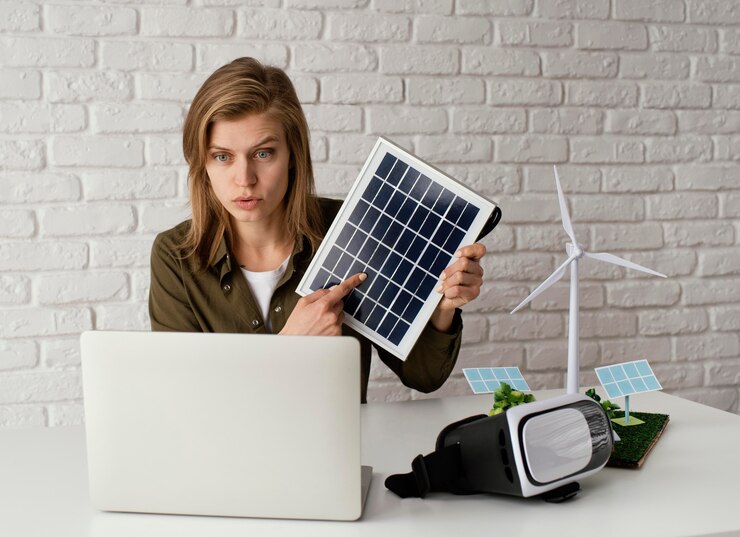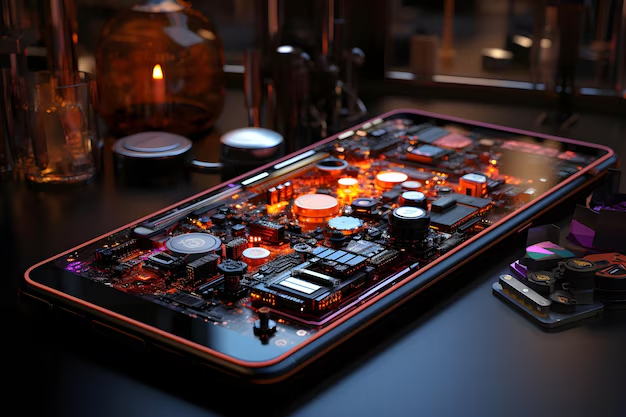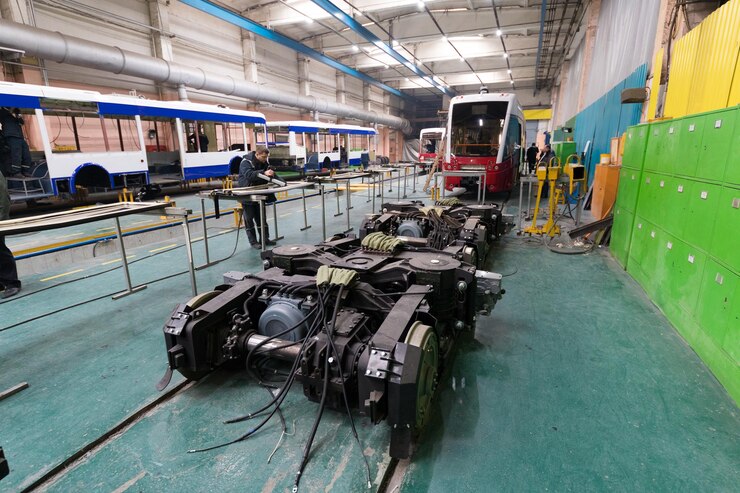As the world steadily embraces sustainable energy solutions, small solar panels are increasingly becoming popular for both residential and commercial purposes. Compact, efficient, and environmentally friendly, these miniature energy producers are making waves in renewable energy by providing off-grid power and reducing our dependence on fossil fuels.
Discover the benefits of small solar panels for portable energy solutions, ideal for home use, RVs, and remote locations.
What Are Small Solar Panels?
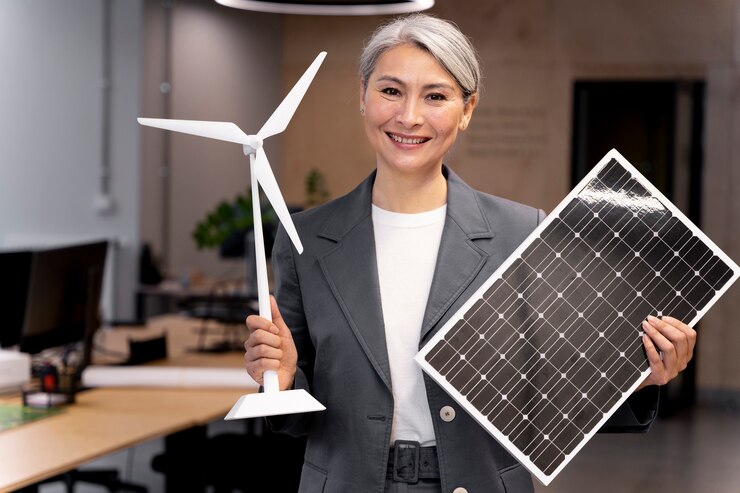
Small solar panels, often called mini or portable solar panels, are scaled-down versions of conventional photovoltaic systems. Unlike large solar arrays designed to power entire buildings, these are optimized for smaller tasks such as charging electronic devices, powering outdoor lighting, or providing energy in remote areas. Whether for campers, RV users, or homeowners looking for a small eco-friendly energy source, small solar panels provide a convenient solution.
Advantages of Small Solar Panels
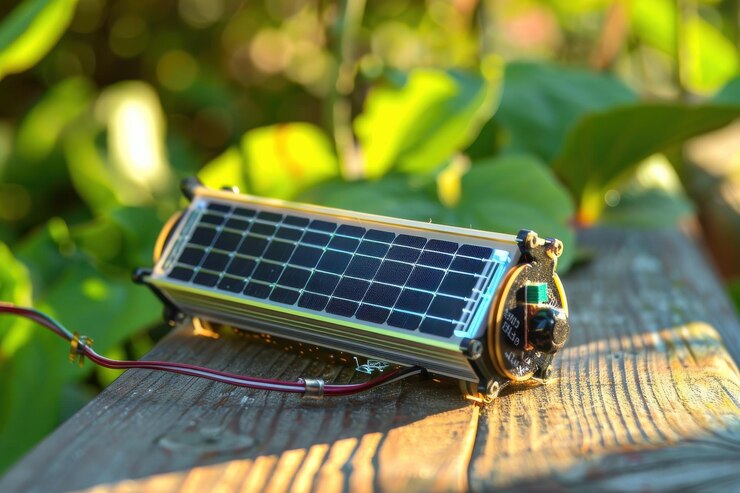
Small solar panels offer many advantages, especially in today’s energy-conscious world. Their portability and easy setup make them appealing to many consumers. In addition, because they harness renewable energy, they reduce reliance on traditional power sources and can save users money over time. The following are some of the key benefits:
- Portability and Flexibility: One of the most significant advantages of small solar panels is their portability. They can easily be moved from one location to another, making them ideal for camping trips, RVs, or outdoor events. They can also be installed in hard-to-reach places where larger panels may not fit.
- Eco-Friendly Energy Source: Small solar panels use sunlight to generate electricity, making them an environmentally friendly option. They do not emit greenhouse gases or require fossil fuels, helping to reduce carbon footprints.
- Cost Savings Over Time: While the initial investment in small solar panel may be higher than traditional power sources, they save money in the long run. Solar panels have little to no operating costs once installed, and some governments offer tax incentives or rebates for solar energy investments.
- Low Maintenance Requirements: Once installed, small solar panel require minimal maintenance. They have no moving parts, meaning fewer chances for wear and tear. Occasionally cleaning the panels to remove dust or debris ensures maximum efficiency.
How Do Small Solar Panels Work?
Small solar panels function similarly to larger ones, though on a smaller scale. They are made of photovoltaic cells that convert sunlight into direct current (DC) electricity. This electricity can be stored in a battery for later use or directly power small devices. An inverter may be necessary to convert DC into alternating current (AC) if you wish to power household appliances.
Applications of Small Solar Panels
Small solar panel have many applications, catering to individuals and businesses alike. Here are a few examples:
- Outdoor Lighting: Garden lights, security systems, and street lights can all be powered by small solar panels. With no need to connect to the electrical grid, they provide an easy and efficient way to light outdoor spaces.
- RV and Camping Power Solutions: For those who love to travel or spend time in nature, small solar panel are a reliable power source for charging batteries, running appliances, or powering devices like phones and laptops.
- Emergency Power: During blackouts or emergencies, small solar panels can provide a backup energy source for essential devices. This is especially important in areas prone to natural disasters or power outages.
- Remote Locations: For individuals or communities living in remote areas without easy access to the power grid, small solar panels can be a life-changing solution. They allow for a self-sufficient lifestyle, providing energy for lighting, communication, and other essential needs.
Choosing the Right Small Solar Panel
When selecting a small solar panel, there are several factors to consider:
- Wattage: The wattage of a solar panel determines how much power it can generate. For small devices like phones or tablets, a panel with a wattage of 5-20 watts may suffice. For more power-hungry devices, you might need a panel with 50-100 watts or more.
- Battery Capacity: Some small solar panels come with built-in batteries to store energy. This feature is particularly useful for ensuring power availability during cloudy days or nighttime. Be sure to choose a battery that suits your energy needs.
- Portability: If you plan to use the panel on the go, consider its size and weight. Foldable or flexible panels are excellent options for portability.
- Durability: Ensure that the solar panel is weather-resistant, especially if you intend to use it outdoors. Some models are designed to withstand harsh conditions such as rain, snow, or extreme temperatures.
- Compatibility: Verify that the solar panel is compatible with the devices you wish to power. Some panels come with built-in USB ports, while others may require adapters to connect to specific electronics.
Installing and Maintaining Small Solar Panels
Installing small solar panels is typically a straightforward process. Many come with mounting kits or frames that allow you to position them easily on surfaces such as rooftops, walls, or even on the ground. Ensure the panel is placed in a location that receives maximum sunlight throughout the day for optimal performance.
Maintenance is minimal but important for ensuring the longevity and efficiency of your panels. Dust, dirt, or snow buildup can obstruct sunlight and reduce energy output, so it’s essential to clean the surface regularly with water and a soft cloth. Avoid using harsh chemicals, as they may damage the panels.
Cost Considerations of Small Solar Panels
The cost of small solar panel can vary depending on their size, wattage, and features. Basic models for charging devices may cost as little as $50, while higher-wattage panels for powering appliances can cost $300 or more. If you opt for a system with an integrated battery or inverter, the price may increase further.
However, it’s essential to consider the long-term savings. By relying on solar energy, you reduce or eliminate your electricity bills, which can lead to significant savings over time. Additionally, many governments offer incentives such as tax credits or rebates to offset the initial investment in solar technology.
Environmental Impact of Small Solar Panels
One of the most compelling reasons to invest in small solar panels is their positive impact on the environment. Traditional power sources such as coal, natural gas, and oil emit large amounts of greenhouse gases, contributing to climate change and air pollution. Solar panels, on the other hand, produce clean energy without harmful emissions.
Moreover, because small solar panel can be used off-grid, they reduce the strain on electrical grids and decrease the need for non-renewable energy resources. The production of solar panels does have an environmental footprint, but this is quickly offset by the lifetime energy savings and the reduction in greenhouse gas emissions.
The Future of Small Solar Panels
As technology continues to evolve, the efficiency and capabilities of small solar panels are expected to improve. Innovations such as more efficient photovoltaic materials, flexible solar cells, and better energy storage solutions could make these panels even more accessible and versatile.
In the future, we can expect small solar panel to become an integral part of our daily lives. From powering wearable devices to integrating with smart home systems, the potential for these panels is limitless.
Small Solar Panels
Small solar panel are revolutionizing the way we think about energy. They offer an eco-friendly, cost-effective, and portable solution for a variety of applications, from outdoor lighting to providing power in remote locations. With minimal maintenance requirements and growing efficiency, these compact energy producers are set to play a crucial role in the future of renewable energy.
For anyone looking to reduce their carbon footprint and become less reliant on traditional power sources, small solar panel are an excellent investment. Whether you’re an avid traveler, a homeowner seeking backup power, or someone living off the grid, these panels provide reliable and sustainable energy.
FAQs
What are small solar panel used for?
Small solar panels can be used for a variety of purposes, including charging electronic devices, powering outdoor lights, providing electricity to RVs or boats, and serving as an emergency power source in case of blackouts.
How much energy can small solar panels generate?
The energy output of small solar panel depends on their size and wattage. Panels typically range from 5 to 100 watts, with higher wattage panels capable of powering larger devices like refrigerators or TVs.
Are small solar panels worth the investment?
Yes, small solar panels are worth the investment, especially for individuals seeking portable, off-grid power solutio or those wanting to reduce their electricity bills. Over time, the savings on energy costs can offset the initial expense.
Can small solar panels work in cloudy weather?
Small solar panel can still generate power in cloudy weather, though their efficiency is reduced. It’s essential to have a battery backup system to store energy for use during overcast days or nighttime.
Do small solar panel require maintenance?
Small solar panel require minimal maintenance. Periodically cleaning the panels to remove dust or debris will ensure they operate at maximum efficiency.
How long do small solar panel last?
Small solar panel typically have a lifespan of 20 to 25 years. Over time, their efficiency may decrease slightly, but they will continue to generate electricity for decades with proper care.







